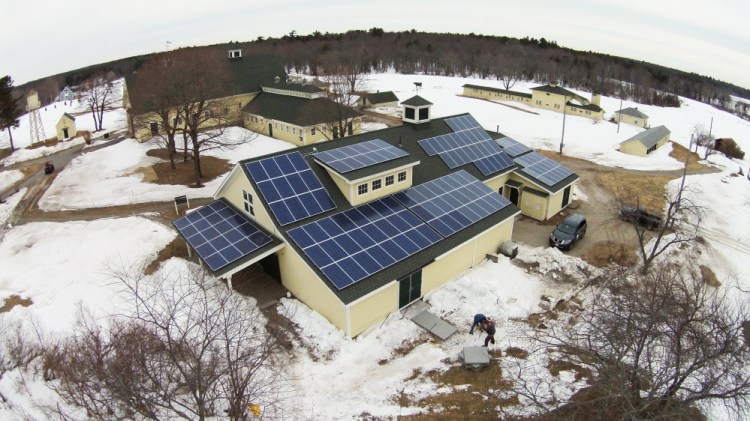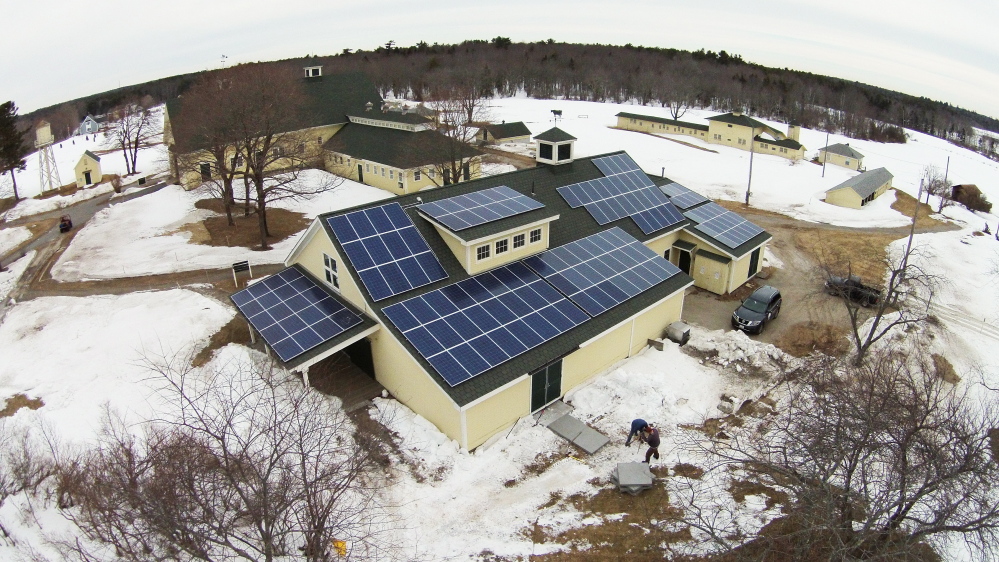Two Maine conservation organizations marked spring’s arrival Friday by unveiling solar power systems, reflecting growing adoption of the renewable energy technology in the state.
On Friday morning, Maine Audubon unveiled a 42-kilowatt solar system at the organization’s Gilsland Farm headquarters in Falmouth. The installation is expected to generate, on average, 74,000 kilowatt-hours of electricity per year and supply roughly 80 percent of the nonprofit’s power needs.
Later in the day, the Wells Reserve at Laudholm unveiled the latest stages of a solar-power system that will produce an estimated 73,000 kilowatt-hours per year, providing 100 percent of the organization’s electricity. Wells Reserve, which is part of the National Oceanic and Atmospheric Administration’s National Estuarine Research Reserve system, said it was the first Maine nonprofit to go 100 percent solar.
The Maine Audubon system was paid for by Moody’s Collision Center, which will receive federal tax credits for the system and will be paid by Maine Audubon for the electricity for at least six years. Grants from NOAA paid for 70 percent of Wells Reserve’s solar installation, with the remaining funding provided by foundations, private donors, Efficiency Maine and the town of Wells. Both systems were installed by ReVision Energy.
U.S. Sen. Angus King of Maine, who serves on the Senate Energy and Natural Resources Committee, attended both ceremonies.
“Investing in renewable energy sources, like these solar arrays, is investing in our future,” King, an independent, said in a statement after the Maine Audubon event. “This forward-looking, collaborative project is the kind of innovative thinking that will lead the way in reducing our dependence on oil, lowering energy bills, and combating climate change, and should be a model for other projects across Maine and across the country.”
A recent state-sponsored study found that solar energy would have greater total value than conventional power generation if the technology was widely adopted in Maine.
Send questions/comments to the editors.





Success. Please wait for the page to reload. If the page does not reload within 5 seconds, please refresh the page.
Enter your email and password to access comments.
Hi, to comment on stories you must . This profile is in addition to your subscription and website login.
Already have a commenting profile? .
Invalid username/password.
Please check your email to confirm and complete your registration.
Only subscribers are eligible to post comments. Please subscribe or login first for digital access. Here’s why.
Use the form below to reset your password. When you've submitted your account email, we will send an email with a reset code.